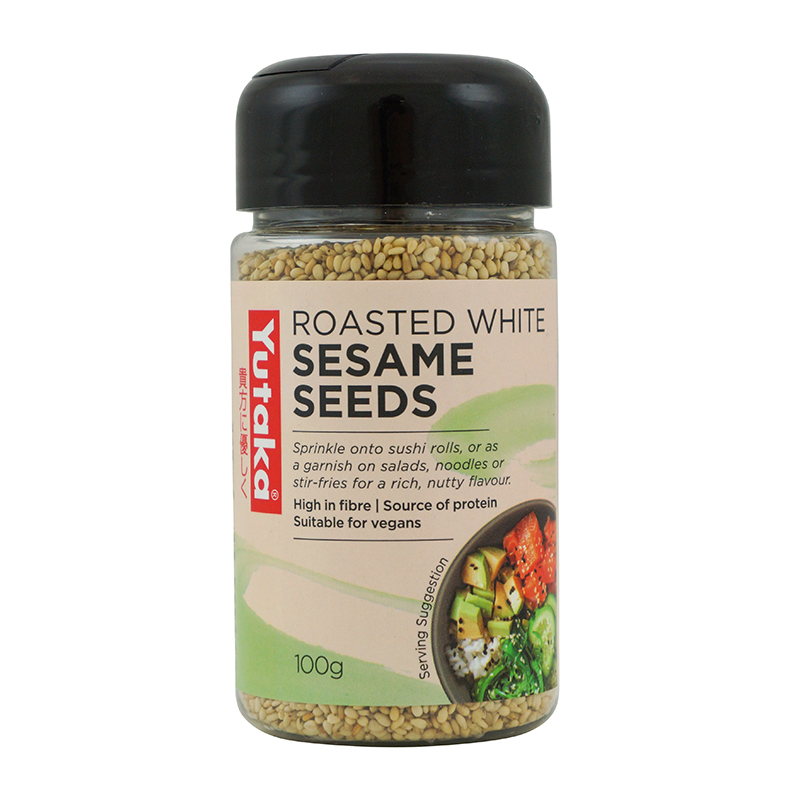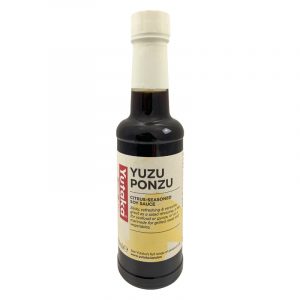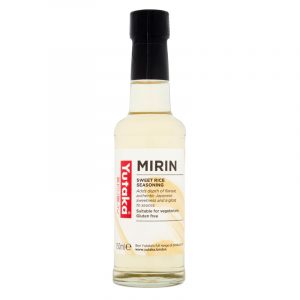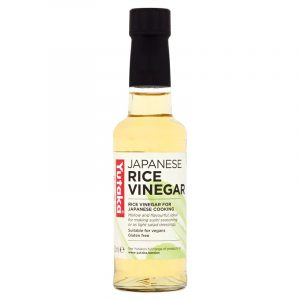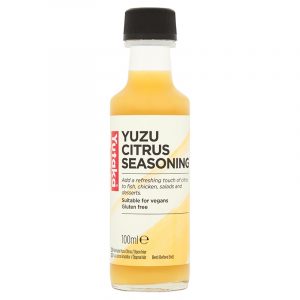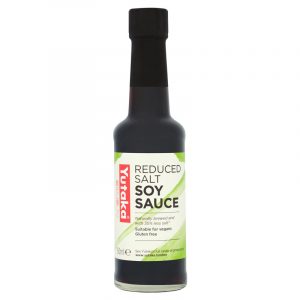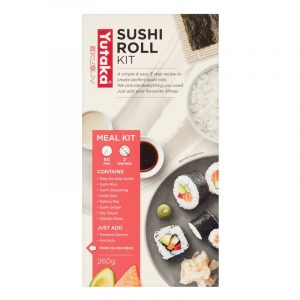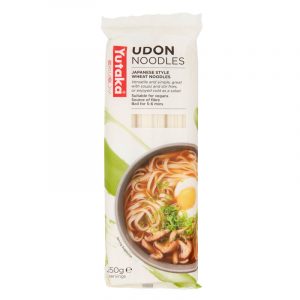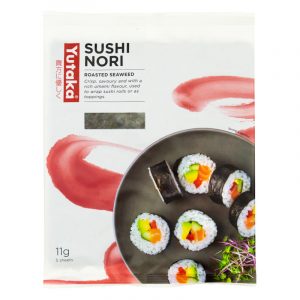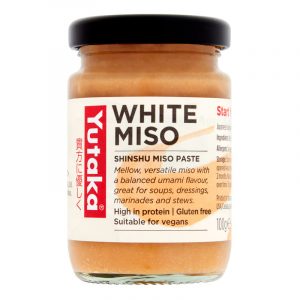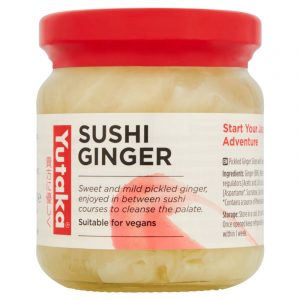Yutaka White Roasted Sesame Seeds 100g
Yutaka
6,68 €
They can be used as a seasoning to give flavor and texture to your dishes. Perfect for sprinkling on top of noodles, salads, stir fry, beef and sushi. You can also grind the seeds and thus release their roasted aroma.
Product Description
Sesame seed is a common ingredient in various cuisines. It is used whole in cooking for its rich, nutty flavour. Sesame seeds are sometimes added to breads, including bagels and the tops of hamburger buns. Sesame seeds may be baked into crackers, often in the form of sticks. In Sicily and France, the seeds are eaten on bread (ficelle sésame, sesame thread). In Greece, the seeds are also used in cakes.
In Asia, sesame seeds are sprinkled onto some sushi-style foods. In Japan, whole seeds are found in many salads and baked snacks, and tan and black sesame seed varieties are roasted and used to make the flavouring gomashio. East Asian cuisines, like Chinese cuisine, use sesame seeds and oil in some dishes, such as dim sum, sesame seed balls; Cantonese: jin deui), and the Vietnamese bánh rán. Sesame flavour (through oil and roasted or raw seeds) is also very popular in Korean cuisine, used to marinate meat and vegetables. Chefs in tempura restaurants blend sesame and cottonseed oil for deep-frying.
Ingredients:
SESAME seeds (100%).
Allergens:
See ingredients in UPPER CASE.
Storage:
Store in a cool and dry place. Once opened, keep sealed.
Usage Suggestions:
Sprinkle On Any Dish!
Other information:
This pack contains a sachet of moisture absorbent. Not suitable for consumption.
Country of Origin:
China
Nutritional information:
| Typical Values: | Per 100g |
|---|---|
| Energy | 2190kJ 528kcal |
| Fat of wich saturates |
41g 6,9g |
| Carbohydrate of which sugars |
18g 2,4g |
| Protein | 22g |
| Salt | 0,07g |
Distributed by:
Socilink Lda
Rua Quinta dos Álamos n.º 3
2625-577 Vialonga
Notice about our product information:
Always confirm the information on the article label. Food products are subject to constant change, for this reason, we recommend that you always read the labeling information that accompanies each product, including the nutritional information, ingredient list, storage, preparation and use instructions as well as other information before use or consumption.
| SKU# | S11398 |
|---|---|
| EAN# | 5014276702556 |
| ITF14# | 05014276702556 |
| Net Content | 100g |
| Gross Weight | 0.2kg |
| Units per box | 8 |
| Catalog Page | 30 |
| Conservation | ambient |
